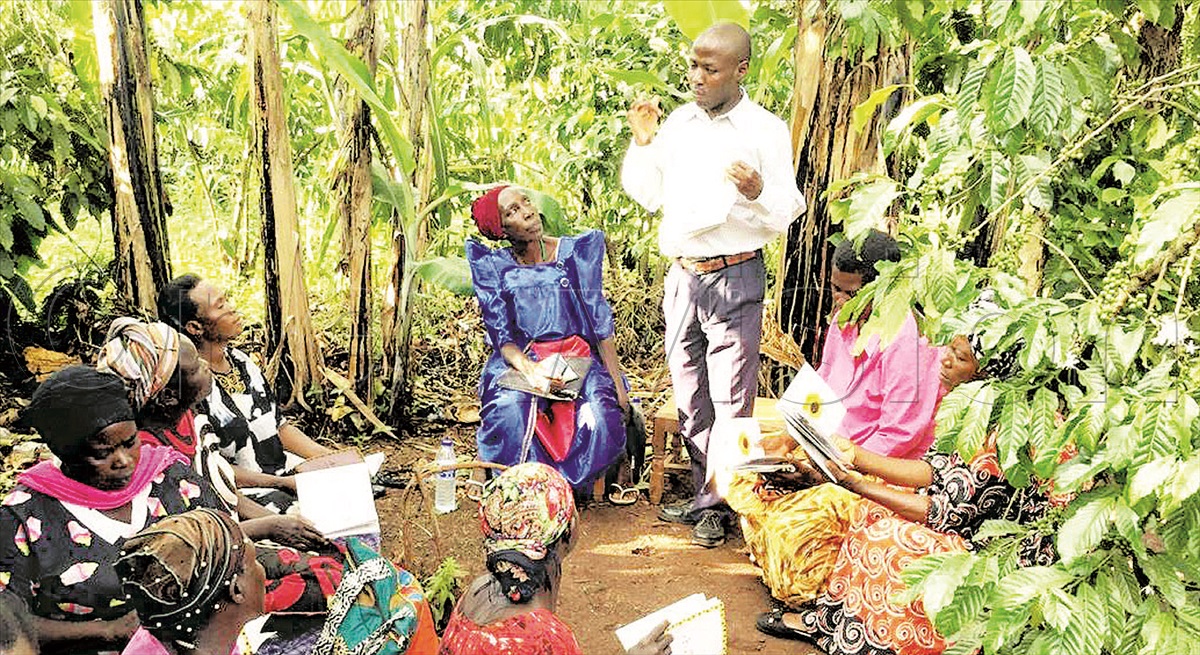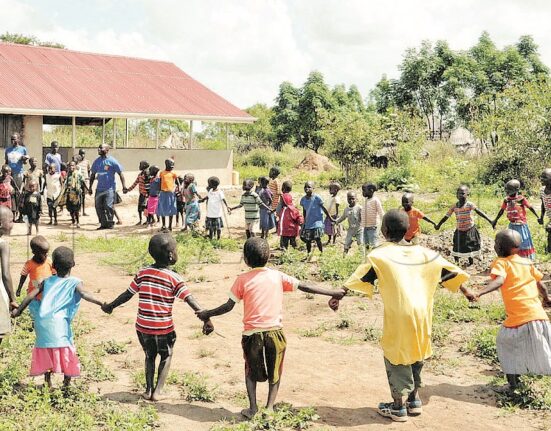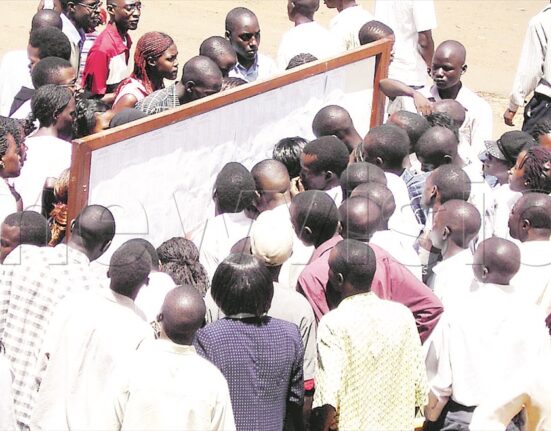(This article was first published in the New Vision on July 20, 2022)
By Richard Wetaya
Seventy-year-old Anna missed the chance to attain adult literacy skills when she was a child because her father insisted that she works the fields rather than attend school.
But this grandmother of seven and a resident of Kirungu village in Kayunga district, who got married 40 years ago, did lose hope of getting another chance to learn to read and write.
The chance came last August when the United Nations Educational, Scientific and Cultural Organisation (UNESCO) constituted a group of 25 elderly women in Kirungu and started teaching them how to read and write English.
Anna was one of the first women to join the group.
These women, who are still undergoing training, are taught by instructors from UNESCO’s Institute for Lifelong Learning and the Commonwealth of Learning – an intergovernmental organisation concerned with the promotion and development of distance education and open learning.
One year later, Anna is now able to read and speak English, as well as use gadgets such as iPads.
“I am happy I can now read and write,” Anna says in a video clip uploaded to the UNESCO Institute for Lifelong Learning website.
Interestingly, Anna’s zeal to learn to read and write has not gone unnoticed in Kirungu.
On several occasions, Anna and her classmates have been accosted by members of their community, eager to know why they chose to learn to read and write in old age. “We want to be able to hold committee and church positions and also fill in voting forms on our own,” Anna responds.
Progress
The story of these women in Kirungu village highlights the opportunities in adult learning and the progress Uganda and its development partners are making on this front.
Uganda’s adult literacy rate has increased from 73.5% in 2016 to 76.1% in 2020, according to information from the finance ministry. The increase in participation in adult literacy, according to specialists, is due to the growing demand.
“Uganda’s literacy rate has steadily increased over the past decades. There was a drop between 2010 and 2012, from which the country, however, recovered,” Kirsten Boyd, a public relations consultant at the UNESCO Institute for Lifelong Learning in Germany, says.
UNESCO’s statistics show that the adult female literacy rate in Uganda stands at 70.84% compared to 82.66% for males, which means women are still 12% behind men. This also means Uganda will have to step up its efforts to reach the sustainable development goal (SDG) 90% target by 2030.
Adult education does not only provide literacy and numeracy skills, but also allows the individuals to make informed decisions regarding nutrition and preventive care. It also lessens the risk of social isolation, according to UNESCO.
“Uganda, notwithstanding challenges, is steadily bridging the gap, with instruments such as the Integrated Community Learning for wealth Creation scheme (ICOLEW) launched in 2016,” Harriet Akello, the principal literacy officer at the gender, labour and social development ministry, says.
The scheme, which seeks to combine adult literacy with the delivery of livelihood and life skills, according to Akello, has reached 2,400 people in the pilot districts of Namayingo, Iganga and Mpigi.
In 2020, the ministry said that ICOLEW, which is currently delivered by 160 adult educators employed by government, would be rolled out countrywide in phases.

Experts’ Voices
According to Reuben Wanasolo, an education consultant, many people, including underprivileged persons, are increasingly realising that it is important to have literacy skills to demand services, such as the Parish Development Model.
Katja Romer, a communications specialist at the UNESCO Institute for Lifelong Learning, notes that the successes Uganda has recorded in adult literacy and education policy places the country in good stead. “Since 2018, Uganda has made significant progress on adult learning and education policy,” Romer says.
However, Rahman Sanya, an assistant lecturer in the department of adult and community education at Makerere University, says while strides have been made, there is still a lot to be done in terms of facilitating adult education trainers.
Sanya also notes that the cost of training adult educators at Makerere, for instance, is high, which locks out many people interested in pursuing a career in educating the elderly. For example, the cost of a master’s degree in adult and community education at Makerere is sh5m.
Meanwhile, adult literacy has also been improving elsewhere. The latest UNESCO global report shows that in 59% of the countries in Sub-Saharan Africa, one in five adults have benefited from adult learning.
The report also indicates that female participation in adult learning has increased across 56% of all countries in Sub-Saharan Africa since 2018.
Expanding Access

In order to increase access to adult education, Musa Mbazira, the director of Nakivubo Adult Education Centre, says there is need to create a department for adult education in the line ministry to facilitate and regulate training.
Jared Oduor Okok, the executive director of Umoja Education Centre, an adult training institution, urges government to support institutions involved in teaching adults.
Patrick Kule, the administrator at Kampala Adult School, says there is no proper monitoring of the adult literacy and education sector, which is dominated by private players.
Harriet Akello, the principal literacy officer, says Uganda needs to review and update its national adult education strategy and also mobilise more resources to expand access to the training.
Meanwhile, Reuben Wanasolo, an education consultant, says Uganda needs to increase access to literacy education to get as many Ugandans to contribute to the achievement of the country’s development goals.









Leave feedback about this